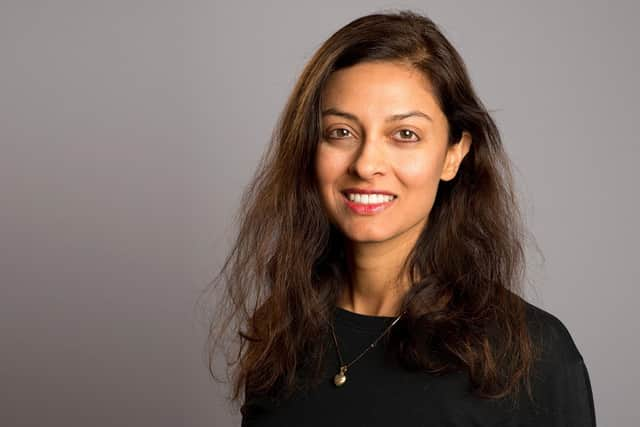UK Covid inquiry in Edinburgh: Devi Sridhar offers insights into lessons to be learned - Ian Swanson
and live on Freeview channel 276
Some familiar faces we've not seen for a while have been appearing again on our TV screens over the past week or so.
The hearings of the UK Covid inquiry being held in Edinburgh have brought back a cast of characters who used to be part of our daily lives during the pandemic, including Scotland’s national clinical director Jason Leitch explaining the latest restrictions, and Edinburgh University academic Devi Sridhar providing insightful analysis.
Advertisement
Hide AdAdvertisement
Hide AdThe inquiry – as well as exploring the justifiable concern about deleted WhatsApp messages, and the equally justifiable colourful language Nicola Sturgeon used about Boris Johnson – has been looking at how the pandemic was handled and lessons for the future.


In her evidence Professor Sridhar spoke about a complacency among the world’s richer countries at the start of the pandemic and an unwillingness to learn from the experience of poorer countries which knew far more about dealing with infectious diseases.
“Every country has something to learn from other countries and we need a level of humility,” she said. “High-income countries hadn’t faced anything like this. There was a sense of complacency that we'll be fine because we always are.”
And she argued that later in the pandemic there would have been fewer deaths if an “elimination strategy” had been followed, as she advocated at the time. In July 2020, there were two weeks with no Covid deaths in Scotland and vaccine trials were promising. “In my mind, we could have a vaccine within months that could save thousands of lives and we are so close to actually being able to eliminate this.”
Advertisement
Hide AdAdvertisement
Hide AdIndeed, she said Scotland had successfully eliminated the original Covid strains. “We did it in Scotland. The problem is we re-imported new strains.”
Her “elimination plan” did not mean lockdown, but extensive testing, controls on borders and cohesion between the four nations, in other words getting England to adopt the same strategy.
She reflected that instead of calling it an “elimination strategy” she should have said “maximum suppression” – it never meant total elimination of the virus, but rather aiming for that by doing everything possible to stop the spread.
“It was trying to capitalise on all that we had done to get to such a good position. That's why when the winter wave came and the winter lockdown and numbers went up it was predicatable and it was really depressing because in January vaccines rolled out and you think ‘How many of those people would have lived, had they just been able to delay infection by a month or two?’”
Advertisement
Hide AdAdvertisement
Hide AdBut Prof Sridhar also spoke about planning now for future pandemics, whatever they may be, and it sounded as if the approach is likely to be closer to her views than the UK government “living with Covid” stance.
“The focus now is what’s called the 100 day challenge: that within 100 days you have a vaccine, a treatment or some kind of therapeutic. In the US that has been translated into 130 days until the entire US population is vaccinated and 200 days until the world is vaccinated, that’s where the US government plan is going. In that 100 days, no-one is saying we should accept spread, they’re saying maximum suppression.”
Covid meant thousands and thousands of deaths, every one a tragedy. Scientists say some new pandemic is inevitable. But there are lessons to learn and we must make sure we do.